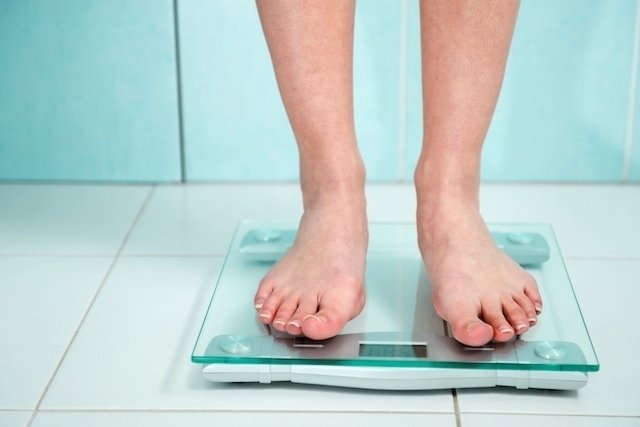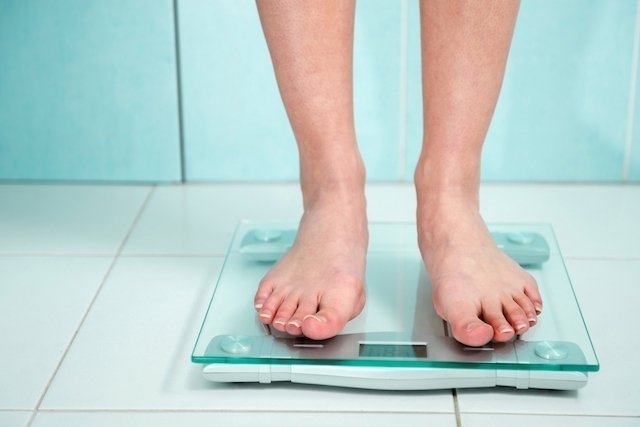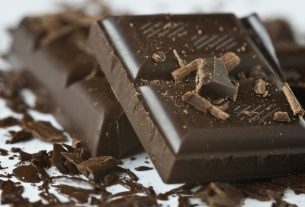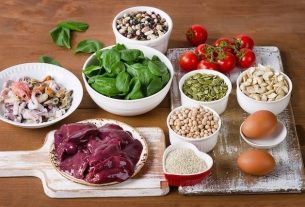To weigh yourself correctly and have faithful monitoring of your weight evolution, you need to take care such as always weighing yourself at the same time and wearing the same clothes, and preferably on the same day of the week, always trying to maintain a standard when weighing.
Weight can vary according to the time of day, the previous day’s meals and changes in the body linked to diet and hormonal production, such as fluid retention and swelling during the menstrual period. So, see below all the necessary precautions when weighing yourself.

1. Always use the same scale
Always using the same scale will provide a reliable variation in weight throughout the day, regardless of the brand or model of scale used. The best option is to have a scale at home, preferably digital, and avoid storing it in the bathroom due to humidity, which can cause changes in the device’s proper functioning.
When weighing yourself, you should always place the scale on a fixed, level surface, with no carpet underneath. Another tip is to always pay attention to the scale’s battery or batteries, and weigh 1 or 2 kg of rice or another object of known weight to check the device’s calibration.
2. Weigh yourself fasting
The best time to weigh yourself is right after waking up, as this makes it easy to maintain a good fasting pattern, avoiding changes in the body caused by the digestion process. Furthermore, before weighing yourself early in the morning, you should go to the bathroom to empty your bladder and bowel, and thus return with nothing in your belly to get a faithful result on the scale.

3. Naked is the best option
Weighing naked is the best option because it makes it easy to take into account changes in the weight of your clothes, and therefore having a simple scale at home makes the process easier. However, if you need to weigh yourself in pharmacies or at the gym, you should always wear the same clothes, so that the weight variation is only that of your own body.
4. Avoid overeating the day before
Avoiding excess food, especially those rich in salt and sugar, and alcoholic beverages the day before weighing is important to avoid fluid retention, which can significantly alter the weighing result.
Therefore, it is important to avoid consuming foods such as sushi, pizza, fast food and sweets the day before weighing in, as well as avoiding going without food or taking too many diuretic teas to influence your weight the next day. Maintain your normal pace, as doing this type of practice will not show your real progress.
5. Not weighing yourself during your menstrual period
For women, it is important to avoid weighing yourself in the 5 days before the menstrual period and during the days of menstruation, as the hormonal changes that occur during this period usually cause swelling and fluid retention, not allowing for a faithful result on the scale.
Therefore, during this period the recommendation is to be patient and maintain care with diet and physical activity, leaving it to check your weight when everything has passed.
Check out these and other tips in the following video:
What is the ideal frequency to weigh yourself?
The ideal is to weigh yourself only once a week, always choosing the same day of the week to weigh in, following the recommendations mentioned above. Furthermore, you should avoid weighing yourself on Monday, as it reflects the excesses that normally occur on the weekend, not providing a faithful result of weight variation.
Being patient and avoiding weighing yourself every day is important to avoid excess anxiety and incentives to make sudden changes in your diet to have a better result the next day, such as drinking lots of diuretic teas or going completely without food. From one day to the next, and even within the same day, it is normal for weight to vary by around 1 kg, so maintaining a weekly weighing pattern is the best choice.
The weight on the scale doesn’t say everything
Finally, it is important to remember that the weight on the scale does not say everything, especially when following a diet guided by a nutritionist and when practicing physical activity regularly. This happens because throughout the process there may be gains in muscle mass and body hydration, which causes weight to increase or decrease less than desired, but there is still fat loss.
Therefore, a good option is to follow up with a nutritionist at least once a month or weigh in using bioimpedance scales, which provide body composition with data on the amount of muscle mass and total fat. Find out how bioimpedance works in our video:

Sign up for our newsletter and stay up to date with exclusive news
that can transform your routine!
Warning: Undefined array key "title" in /home/storelat/public_html/wp-content/plugins/link-whisper-premium/templates/frontend/related-posts.php on line 12
Warning: Undefined array key "title_tag" in /home/storelat/public_html/wp-content/plugins/link-whisper-premium/templates/frontend/related-posts.php on line 13





